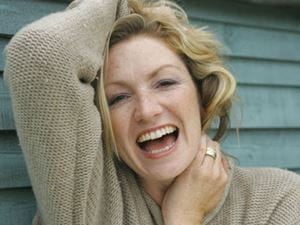
Don’t Just Change, Transform
The athletes who competed in the London Olympics are models of persistence and what it takes to maintain change. Change as it pertains to most high-level competitive sports entails working out 2-5 hours per day with the goal of making small improvements over the course of an entire year. For example, competitive swimmers will work for years to drop a single second off of their best time. One one-hundredth of a second can often make the difference between gold, silver, bronze or making the team at all. Of many sports, it’s likely that swimming is oriented most to the individual. As such, it offers some lessons on how we can sustain change in our lives as we search for the balance with our internal and external environment we call health. There are two approaches that help create sustainable change for a competitive swimmer. These are the mechanics, or translational tools, and the intangibles, or transformational approaches.
Certainly change can occur with one and not the other, but it will not be sustainable or optimal. The mechanical/translational approach includes the practical aspects of the sport that can be translated to anyone, anywhere. These include a knowledgeable coach, a good pool, a practice routine with a set time and place, and appropriate workouts with an emphasis on specific techniques and conditioning. In this category, the talent levels of the individual swimmer and the coach are variables that affect outcome. The intangible/transformational aspects are completely individual and cannot be imposed on anyone—they must come from within.
Yet, how often do we see the outcome of sporting events deliver victory not to the most talented, but to those with greatest camaraderie, heart and desire? Optimally, the heart, mind, and body can work seamlessly to provide what is needed at just the right time. The ability to be aware of what is going on right here and right now is the magical elixir that helps an athlete to balance the resources necessary for success. We can be aware of who we are, including our strengths and weaknesses. We can frame our present situation with a clear understanding of where we have been in the past and where we wish to go in the future. A balanced mind, body, and spirit fill us with reason to wake up in the morning, with an ongoing expression of who we really are. When we are out of balance, goals can become a source of judgmental striving that can never be satisfied and are never enough. Vince Lombardi, legendary football coach and motivator, famously said: “Winning isn’t everything, it’s the only thing.” Later in life, he came to regret those words. Instead, he wished he’d emphasized that giving 100% effort is what’s most important. In any endeavor, whether a quest to improve athletically or to experience health more completely, it is feeling that we have given our highest and best individual effort that counts the most. The time has come to expand our methods purposefully and to tap the resources of our heart and mind.
What does all of this have to do with our health?
Wellness is the experience of that balance we call health. In order to create a sustainable wellness, we must know where we are right here and right now. Once we know where we are, we can choose to explore who we are – the good, bad, and the ugly. If we are able to look at our individual self with the merciful eyes of a grandparent, we can more fully understand why we are who we are. We can then begin to explore where we want to go in the future. When our being informs our actions it creates a constantly renewing system in which we can catch small imbalances before they become large obstacles. Whether we finish first, second or last, our highest and best effort is always enough. Seeing our self and the world with a new set of eyes provides the renewable fuel of transformation that powers the vehicle of change.
Dr. Matt Mumber and Heather Reed are the authors of “Sustainable Wellness: An Integrative Approach to Transform Your Mind, Body, and Spirit”, published by New Page and due out September 22, 2012. EAN 978-1-60163-234-0 List Price: US $15.99, Canada $17.95

